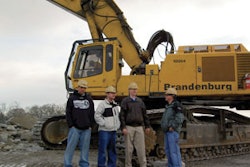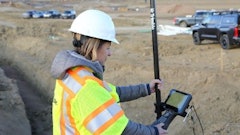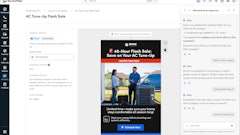
After you interview people, do you have enough evidence to "convict" them of being an A-player? Do you know if they have taken ownership, led people, figured out problems, and gotten results? And, have they gotten the kind of results that you need in this job. I talk a lot about how to do this in my book How to Hire A-Players Here is an overview of some strategies from the book:
First of all, put together an interview scorecard for the position for which you are hiring. It should outline what an A-player looks like for the position for which you are hiring. Your scorecard might have 5 criteria, it might have 13. These criteria could range from competencies like "Proven Leader" and "Proven Quality Control Abilities" to "Strong Sense of Urgency" and "Excellent Personal Customer Service Abilities." When you get others in your organization involved in creating such a scorecard, you will be amazed at how much disagreement there is over the profile. If you all can't agree on what an A-player looks like, your chances of hiring one are pretty small.
As part of this exercise, I like to customize an on-line personnel assessment that matches the scorecard. In addition to asking candidates interview questions, we can provide them with an on-line test that compares their results to the scorecard for the role. These test results help to reveal weaknesses in candidates that may not be immediately evident from interview questions. We usually test candidates after the first round of interviews but before the final interviews. That way, interviewers can focus on these potential weaknesses during their last round of interviews.
During the interview itself, have your scorecard and the candidate's resume in hand and go job by job asking the person to:
- Tell me about your most meaningful accomplishments in this role.
- Ask plenty of follow up questions such as "tell me more" and "why so?" that dig beneath the surface and give job candidates enough rope to prove or hang themselves.
With this approach, you will have a pretty clear picture of what someone has accomplished and not accomplished during his or her career. How does this picture compare to your scorecard? If you need to know more to answer that question, now is the time to turn to more specific interview questions. For example, my clients often want to hire people who are leaders as well as experts in their specific areas. Your review of their accomplishments will have revealed some good information. If you need more, you can ask questions such as:
- Can you tell me by name the people you would say followed you in this role?
- If they worked for you, how were you a leader for these people vs. just being their manager?
- How did you influence them?
- If I called them and spoke to them, how would they say you impacted them?
- Are you still in touch with these people?
- Would they consider following you to this new job?
For some more ideas on favorite interview questions, Jay Goltz wrote a good column in the New York Times recently, you can check it out here http://nyti.ms/jaygoltzinterviewquestions
Here is another helpful hint: during the interview, write down quick notes in the candidate's own words. If you do this, you will find that when you review your notes, these "quotes" will trigger your memory and help you recall what impressed you or turned you off about a candidate.
Finally, score each person on your scorecard. Then, compare notes with other interviewers (other people invariably will catch things we missed and vice versa). You will find that the combination of asking the right questions in an interview, and comparing what you hear to a scorecard for what you need, helps you to avoid hiring mistakes and make your interviewing process more "commercial grade."
Eric Herrenkohl is President of Herrenkohl Consulting and the author of How to Hire A-Players www.howtohireaplayers.com.



















